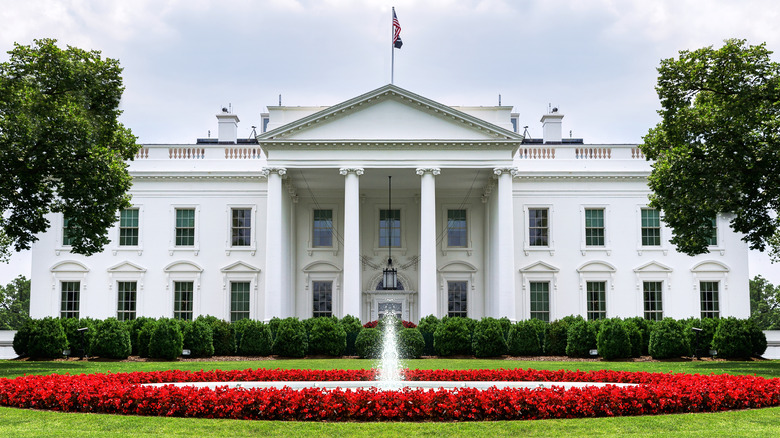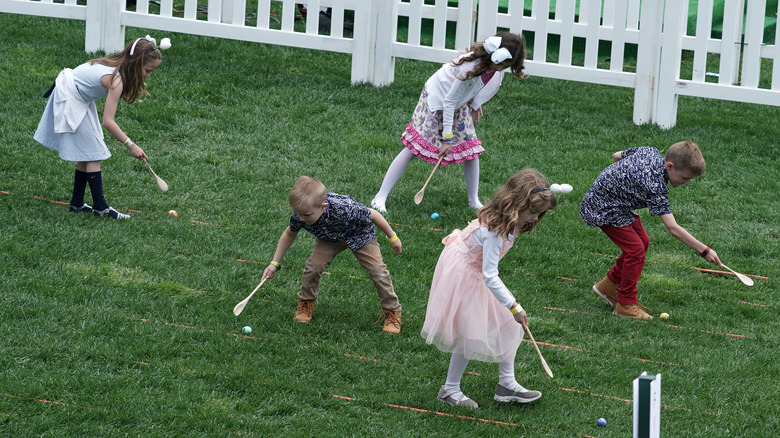The Massive Amount Of Hard-Boiled Eggs White House Chefs Have To Make For Easter
White House chefs have an important job. In fact, preparing meals for the president is such a high-profile position that chefs can't even be hired unless they already have an in at the White House. The staff must be referred by current White House employees, with some positions handed down among family members, and understandably, security is of utmost importance, according to the Daily Meal. While they must manage the day-to-day operations of one of the most important kitchens in the world, they also have to be responsible for important state dinners, cook for international dignitaries, and prepare for other significant gatherings, including one of the kitchen's biggest annual events: the White House Easter Egg Roll.
The annual Easter tradition was started by President Rutherford B. Hayes all the way back in 1878, per the National Park Service. It has since grown significantly, and is now attended by over 200,000 people from all 50 states, who are selected by a lottery, according to Food and Wine.
The Easter Egg Roll involves thousands of eggs
Before the event, White House chefs have to make a whopping 14,000 hard-boiled eggs in preparation for the big day, according to Food and Wine. But what's even more surprising is not a single one of those eggs is intended to be eaten. Instead, most of them will be hand-dyed by the kitchen staff and then rolled down the South Lawn of the White House. Around 4,500 of the remaining eggs will be decorated by participating guests at the designated egg dying station during the celebrations.
Luckily, there are over five full-time chefs and 20 to 25 part-time chefs and other staff working in the White House kitchen to help make it all possible, according to Showbiz CheatSheet. After all, hard-boiling 14,000 eggs is certainly no easy feat, and that's not even taking into account all their regular kitchen duties that also still have to be completed, such as creating recipes, preparing for important state dinners, and of course, feeding the first family.

